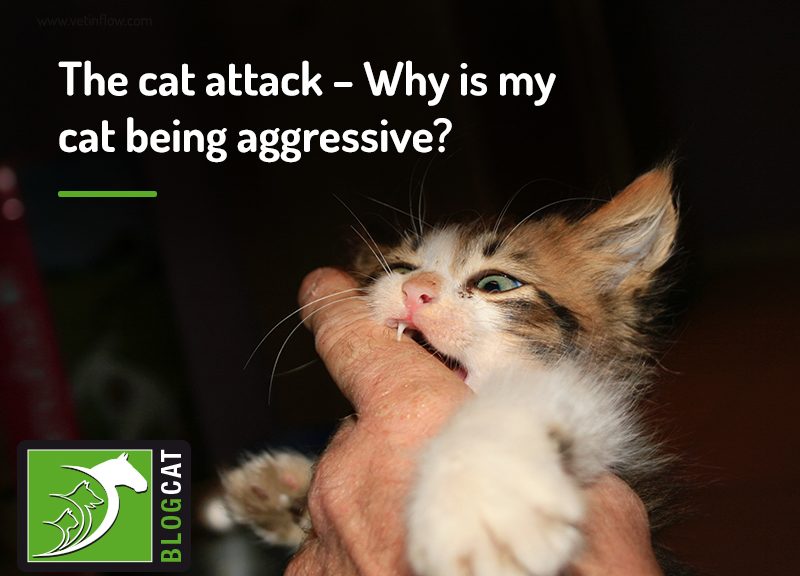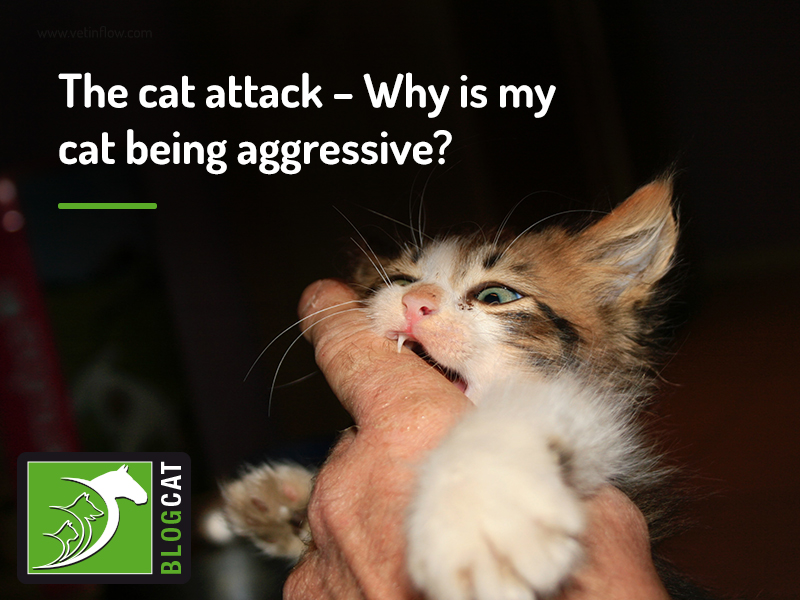Particular as they may be, cats have wonderful personalities and make great companion animals and furry friends.
However, sometimes cats can show aggression towards their owners and other pets, which can be very detrimental to the bond between them and the home environment, and even dangerous in extreme situations.
Some aggressive behaviours are natural and even essential when it comes to hunting and personal defence, but these are definitely not wanted or needed in the security and comfort of our homes.
So, assuming that our cats are fed, well, that they don’t need to hunt to provide for their next meal, and that they have the whole house to claim as their territory, what can be causing our cats to act aggressively?
To answer this question, we need to go back to the kittens first weeks of life. Approximately between the second and ninth weeks of age, there is a very important phase in a kitten’s development, also known as the socialisation period. During this period, the kittens should be with their mother, so they can learn a number of normal cat behaviours, such as hunting and grooming, for example, skills that they are going to need and use throughout their lives. This is also the ideal timing to introduce the kittens to different experiences and stimuli, so they can get to know what to expect of a situation, what to fear, what to be careful with, and what is safe, gaining the foundations to grow into healthy and confident adult cats.
When a kitten is not adequately socialised, this can result in the manifestation of aggressive behaviours later. However, aggression is often the combination of various factors and not the result of a single event. Another common cause of attacks is a response to stress, which can, in turn, be associated with interactions with people (which can be as simple as petting), or with other animals, changes in the environment, fear, pain, and even health conditions.
Hyperthyroidism, infectious diseases, osteoarthritis and idiopathic cystitis are just a few examples of medical conditions that are commonly associated with feline aggression. As such, if your cat is acting aggressively, it is very important to seek veterinary assistance. Your vet will be able to perform a thorough check-up to make sure no health issues are causing these behaviours, as well as devise a treatment plan matched to your cat’s case.
Treatment strategies can be as simple as modifying the cat’s environment or the way you interact with your cat, but most cases usually require a multi-modal approach. Also, keep in mind that altering a cat’s behaviour is something that takes time and patience. Make sure you discuss with your vet all the concerns you may have and do not try to solve this type of problem without the help of a qualified professional.
Would you like to know more about cats? Check our Feline Courses:
Feline courses

